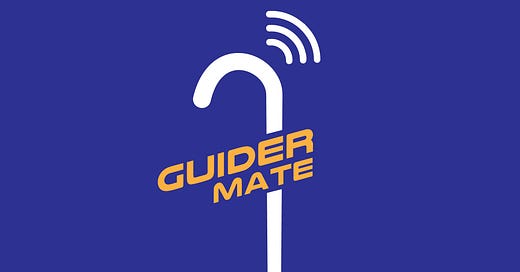Smart Solutions for Blind People in Iraq
Software engineer Rawan Kamal develops high-tech products for the visually impaired
Rawan Kamal was at college when he sketched his first design for a smart blind stick. A number of his friends are blind or visually impaired, and he wanted to create a tool that would give them more independence. “They need to study, go to the bazaar and other places with freedom, but they can’t because there are no tools to help them,” the 23-year-old software engineer says.
His smart blind stick works via sensors that send a signal to the user when an object is detected. There are three sensors covering all directions and a pointer that tells the user where the obstruction is located through touch. “Unlike standard canes, they don’t need to tap the stick and feel their way along; they just walk normally,” he explains.
The college project drew attention from the Kurdistan Innovation Institute, who were impressed by Kamal’s creative thinking and offered him a job. Now, he develops mobile applications and websites for them during the working week and works on the smart stick prototype in his spare time. In the future, he hopes to establish a brand specializing in products to support the blind. “I have a lot of ideas for tools that would help blind people—I see what they need,” he says.
The Guider Mate brand will eventually stock a kit to learn Braille in Kurdish, which he is currently working on, and a specially designed smartwatch. Kamal’s aim is to enable blind people to participate confidently in everyday activities. Visiting a local center for blind people in Kurdistan, he hears about the frustrations they face. “They can’t move freely because there are no tools to help them, so I decided to create some,” Kamal says.
Some of the people he meets there have lost their sight in recent years and are adjusting to life with a blind stick. Others have been blind for their whole lives. “They say everything around them is white. They see no other color. Some are really depressed because they remember what it was like to see,” he says. Testing his smart stick at the center met with a positive response. “They loved it. I think it will prove really useful,” he adds.
At present, he is looking for a designer to incorporate the latest round of refinements into the Guider Mate prototype. When this is complete, he will carry out more tests before finalizing the product for the market. So far, he has struggled to raise the money to pay for 3D-printing his prototype, but an Innovation Hub grant from Ideas Beyond Borders will allow him to develop the next version and push the project closer to completion.
In the future, he hopes to make a smart stick that is mobile-phone-sized and more user-friendly. His hope is that the IBB grant will lead to more funding opportunities, enabling him to build Guider Mate into a business that produces high-tech products for blind people. “It’s very difficult to function in life when you can’t see. Trying to study and improve yourself, or just going out and walking along the street, becomes very hard. I want to make it easier to lead a normal life,” he says.
This article was written by Olivia Cuthbert.





